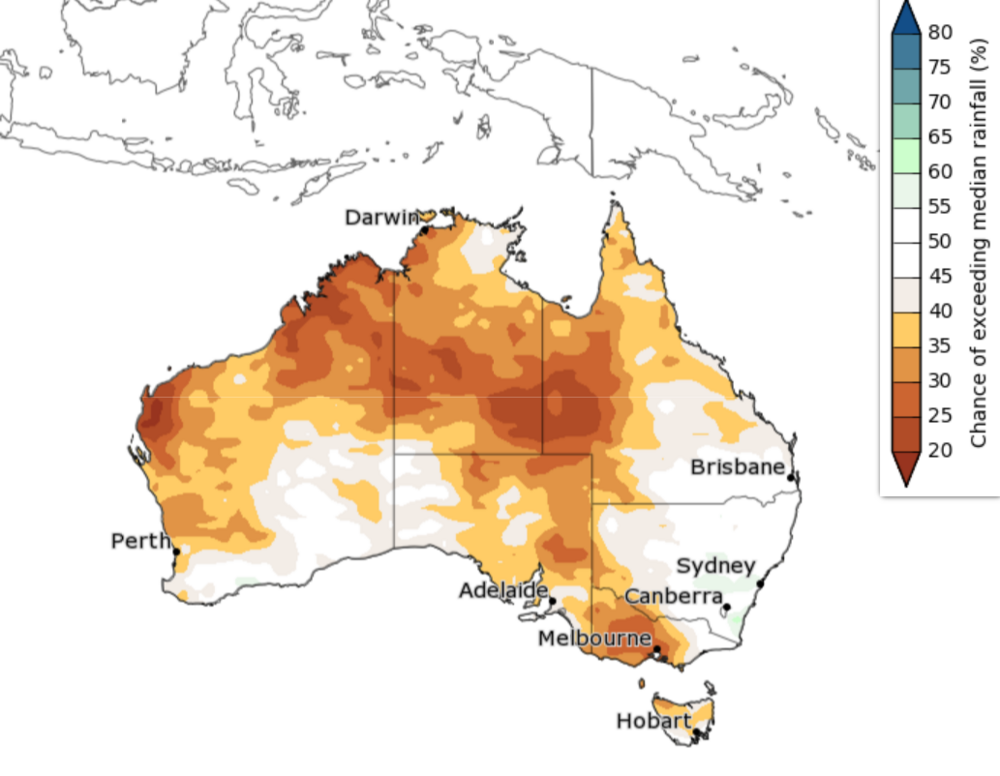More warmth and less rain ahead according to BOM
Laura Williams
14 January 2024, 2:38 AM
 Not much of Australia will be unscathed by the warmer than usual days ahead. (Supplied)
Not much of Australia will be unscathed by the warmer than usual days ahead. (Supplied)While Australia was well warned about the El Niño period it’s in the middle of, what that means has come as a surprise, as dry periods are interrupted by heavy rainfall.
This week, the Bureau of Meteorology (BOM) released its long range forecast, gauging what conditions will look like all the way into April.
While the influence of El Niño is expected to recede, the forecasted conditions are still hot and dry.
“For February to April, the Bureau’s long range forecast shows rainfall is likely to be below average,” it reported.
“Warmer than usual days and nights are very likely across almost all of Australia.”

The Western Plains looks to remain relatively unchanged in terms of usual rainfall levels. (Supplied)
As summer continues, the BOM has warned that El Niño’s impact will decrease for the Western Plains.
“The typical drying influence of El Niño on Australia's climate usually reduces during summer, especially in the east.”
“As we have seen this year and in the historical data, high-impact rainfall events can occur during El Niño years, particularly during October to April when severe storm frequency peaks.”
Work to be done
The BOM has been the subject of criticism following major weather events in North Queensland that came with little warning, leaving residents unprepared.
Minister for Emergency Management Murray Watt has said that a review will be ordered for the weather warning system that is used across Australia, which each state implements differently.
“What I've asked the National Emergency Management Agency to do is to bring together the Bureau of Meteorology, state governments and councils to see where there might be some gaps in the system in terms of getting those text messages out,” Minister Watt said.
“It might be that the Bureau needs to provide slightly more clear information than they are at the moment. It might be (that) the councils need a bit more training about how to recognise the signals and how to translate that information from the Bureau to text messages.
“The other thing we're trying to do at a national level is bring in place a new national messaging system that we expect to have up and running by the end of next year."
Minister Watt said that forecasters have a bigger challenge than ever before.
“Climate change is having an impact. It's having an impact in terms of more frequent disasters, more extreme disasters... the number of different events that I've been involved in, which have been described as unprecedented, I've lost count of.
“That's something that I know the Bureau is working hard on, but unfortunately, the reality is that climate change means that we are going to be living through more unpredictable weather.”
The latest climate outlooks can be found here.



